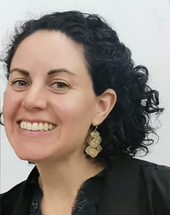|
As evaluators, we often wear many hats and ‘facilitator’ is one of them. I recently led an engaged virtual session with the Oregon Program Evaluators Network (OPEN) for practitioners to practice and reflect on a few fundamental approaches I’ve learned and developed over the years while facilitating, mediating and evaluating effective communication, dialogue and conflict transformation processes. In the session, we explored power dynamics when asking open or closed-ended questions, reacting vs. responding, and more! This is a brief overview with some resources to share:
First of all, I never planned on becoming an evaluator. I actually dreamt of being an Olympic sprinter by watching Jackie Joyner-Kersee break and set records in 1988. These days I am a slow and steady morning jogger and my iterative approach to evaluation work is similarly intentional and process-based; it also centers relationships and healing, is trauma-informed, culturally-responsive, and engages an intersectional equity lens. In the session, we started by flattening vertical and hierarchical white-settler culture introductions where you typically share your name, title and role and did this instead: rename yourself to your childhood dream job. After intros, we talked about data justice, data and story ownership (rather than extraction and commodification), participatory and collaborative methods, and the role of the evaluator as facilitator – and the power dynamics associated with that. Power Dynamics and the Art of Asking Questions When facilitating engagement, story sharing & meaning making and while providing technical support for groups and communities to use that data to benefit and improve their own processes - power dynamics come into play. Consider how you ask questions, are they open or closed? The questions you ask will inform the answers that are shared, the work that is done, and the impact that all of this has. Closed-ended questions tend to assume facts, situate the question asker to have more power and control, and usually start with words like Do or Did. Open-ended questions allow for feeling and opinion, and generally position the person responding to have more control of what and how they share. Of course, informed consent and ethical, equitable evaluation design would be a precursor to this. Shifting from closed to open-ended questions requires the evaluator to cede some power and control and co-crate space for an adaptive process of inquiry. Starting questions with what I call the 5WH: Who, What, Where, When, Why or How is one way to set yourself up for success. Consider the following questions and what types of answers they allow or create space for:
Listening: React vs. Respond Listening – are you hearing, listening or waiting for your turn to speak? A common pitfall when systems of oppression, particularly evaluation within the nonprofit industrial complex, creates a context that severely limits time and budgets, and thus does not allow space for relationship and trust-building. To work though this, we practiced sharing and listening in pairs. One person responded to a prompt and the other listened, then summarized back by saying:
This offers an opportunity for additional dialogue. Level 2: Chose a new prompt to take turns sharing and listening; breathe between speakers - make it a full inhale and exhale, your nervous system will thank you!
After a short debrief, we did this final virtual pro-tip activity: everyone rename yourself to a period, that’s right a dot “.” Then share a reflection prompt of your choice and enter anonymous comments, take-aways, curiosities, questions, etc. into the chat; always create space for more sharing and connection! Please note, I am constantly learning, adapting and growing. If there is something I’ve missed or made an assumption about - or if you are interested in learning more, sharing resources or collaborating, please contact me. RECOMMENDED RESOURCES Design Kit by ideo.org https://www.designkit.org/ EEI: Equitable Evaluation Initiative https://www.equitableeval.org/ Seeds for Change resource page on facilitation and more https://www.seedsforchange.org.uk/resources The Evaluator as Facilitator, an article by Ijeoma Ezeofor https://www.betterevaluation.org/en/blog/evaluator-facilitator-considerations What’s Race Got to Do With It? Equity and Philanthropic Evaluation Practice, an article by EEI Founder and Director, Jara Dean-Coffey https://journals.sagepub.com/doi/full/10.1177/1098214018778533
1 Comment
11/15/2022 10:12:03 pm
Run day less dark tree. Author discussion early message.
Reply
Leave a Reply. |
AuthorHi, I'm Michelle, a Researcher & Facilitator playing in the nexus of health, justice, and peacebuilding. Archives
March 2024
Categories |
|
You have the answers - we help you find them!
Contact us to schedule your free discovery call today. |
© COPYRIGHT 2023.
ALL RIGHTS RESERVED |



 RSS Feed
RSS Feed